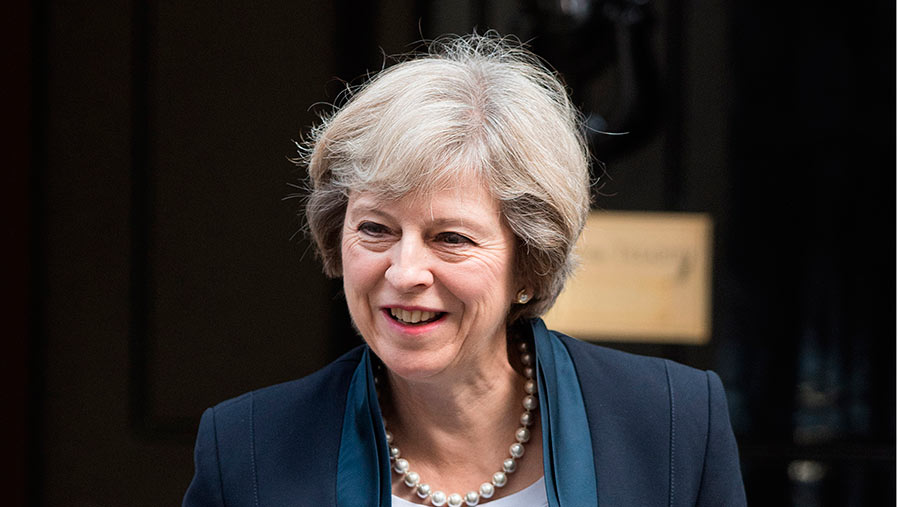Opinion: June’s election will dictate agricultural policy
 © REX/Shutterstock
© REX/Shutterstock St Osyth village hall is not exactly the thatched idyll as seen in the Vicar of Dibley, but rather a 1960s creation just about big enough for low-flighted badminton.
As a villager, I’m an occasional visitor, whether it’s attending quiz nights or blood-doning sessions.
But lately the thing I seem to do most often in our village hall is vote. It used to be no more than once every four years, but recently it’s turning into an annual event. Like a creature of habit, I’ll be back in there on 8 June, stubby pencil in hand.
My electoral district is the chameleon constituency of Clacton-on-Sea, where in the past five years we’ve gone from having a Tory MP to a Ukip one and now an Independent.
Opinion: Lessons from the 2017 calving season
Curiously, it’s always been the same bloke – Douglas Carswell – who has now had more parties than Dublin has on St Patrick’s Day.
 Guy Smith comes from a mixed family farm on the north-east Essex coast
Guy Smith comes from a mixed family farm on the north-east Essex coastOn 8 June, yet again, the eyes of the world may turn on Clacton to see which way the political wind is blowing.
I sometimes worry that if Clacton is a barometer of the mood of the nation then we are all in trouble, but maybe I shouldn’t be so rude about my home patch.
The general election of 2017 is going to be different in as much as it will be conducted through the prism of Brexit.
To add to the intrigue, it should be remembered that 75% of MPs, many of them in rural areas, defied the majority of their constituents by campaigning and voting to remain.
For farmers it will be a first chance to interrogate their MPs or prospective MPs with Brexit as a reality rather than just as a possibility.
In the term of the next Parliament, hundreds of decisions will be taken that could colour the future of agriculture for a generation. Trade, access to labour, regulation and support – all key areas of policy that will influence our prospects.
Blank canvas
Furthermore, Westminster rather than Brussels will now write agricultural policy. For over 40 years that policy has been decided on the Continent through the CAP. Now our MPs will formulate what will happen in our own backyard.
You could argue that this election will be the first since 1966 when we will vote in a government who will determine agricultural policy rather than just trying to influence it as one of many EU states.
In many instances, we will be starting with a blank canvas. The next few years could be a time for radical, brave and new ideas. It will be the men and women who we return to Westminster this June who will carry out the task.
Challenge
In this regard it could be compared to the 1945 election when a groundbreaking Labour government turned its back on 50 years of policy that relied on imports for our food needs, which in turn left British agriculture to falter and fossilise.
This revolutionary post-war change was enshrined in the 1947 Agriculture Act which in its own words sought “to promote a healthy and efficient agriculture capable of producing that part of the nation’s food which is required from home sources at the lowest price consistent with the provision of adequate remuneration and decent living conditions for farmers and workers, with a reasonable return on capital invested”.
I suspect many of us would want to return MPs in 2017 who will have the modern equivalent of the vision displayed by their forebears 60 years before.
So, as an industry, we must recognise the historic importance of this ballot by rising to the challenge of getting our voice heard.
Amid the clamour of a Brexit-born election this will not be easy, but we mustn’t be cowed by the enormity of the challenge. Instead, we should rise to it.

